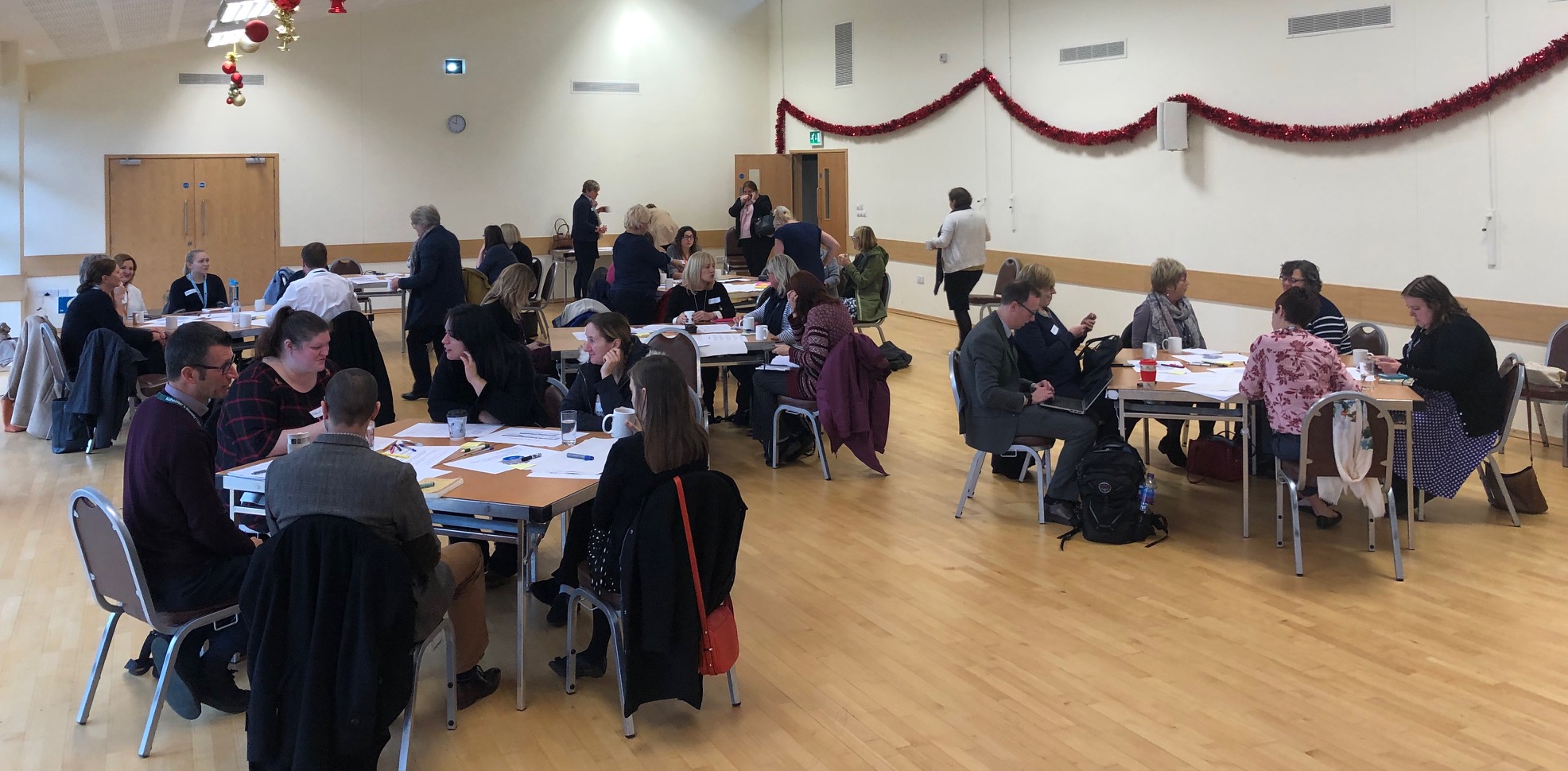Norfolk and Waveney STP Dementia Pathway development
Multi-channel involvement to inform integrated care pathway.

The Purpose
The reason for the work was the need to create a new Dementia pathway across the area covered by Norfolk and Waveney STP (a multi-agency Sustainability and Transformation Partnership serving a population of about 1 million people) by the end of March 2019 , working collaboratively with whole system, and with people living with dementia and carers at the centre of the process.
The aim of the activities with people affected by dementia was to learn from people's experience:
- to find out how to provide integrated health and care dementia support across the whole pathway
- to develop detailed recommendations and ideas about implementation
Preparation
The engagement events were commissioned by the STP, which is Chaired by Dr Liz Waddy, GP, and includes members from Alzheimer's Society and other organisations.
What happened
The STP invited people affected by dementia to six events within which about 36 table top focus groups took place. There were112 attendees (of whom 10 were people living with dementia, 23 were carers and 93 were professionals) worked in mixed groups at each table.
The multi-agency team organising the events took each part of the NHS Dementia Well Pathway and used short, open questions to have a conversation in which everyone got to say what 'good' means to them.
- A presentation took people through the day, in the moment, a step at a time.
The team used the Dementia Statements: for each pillar of the Well Pathway, they referenced a 'We' statement.
The team had an engagement pack we offered to send out for people to submit comments if they were unable to attend the events. They made links to the Dementia Statements.
- The pack included a simple answer sheet in Word format so that it could be viewed and completed easily, including with assistive technologies, or printed out and completed on paper. About 20 people chose to do this, including people affected by dementia.
The team held a focus group with 15 carers at a big dementia café in Wymondham.
The team had 5 or 6 detailed structured conversations with professionals.
The results
The STP team gained new insights to gaps in provision through having people affected by dementia in the conversation. They discovered there is a big gap in provision for carers when they become bereaved or the person with dementia they have been caring for moves into a care home.
In March 2019 the STP team sent this update to participants, to let them know what had been learned through the engagement activity, to tell them about next steps and to invite people to say if they would like to stay involved.
Learning points
Think about timing - for example how long it will take people to get up? What public transport is available? Events starting at 9.30am are likely to be starting too soon.
Design your approach collaboratively, working with organisations such as Alzheimer's Society
Adapt involvement approaches to be dementia-friendly: for example, avoid jargon, keep questions simple and be flexible about questions and focus so you can follow what's important to people affected by dementia.
Consider any jargon you need to explain. The team found the words 'pathway' and 'map' a challenge as their everyday meanings are so different to how they use them in their work.
Think carefully about facilitators - you may need additional people to help people with dementia join in mixed group conversations.
- With the help of Alzheimer's Society the STP were able to provide, a roving facilitator, in addition to table facilitators.
- The roving facilitator was able to provide extra support to enable people living with dementia to join in the discussion effectively.
Provide a dementia-friendly welcome to your event - building rapport, making sure people have tea and coffee on arrival, helps by the time you come to people sharing about their experiences.
Consider the emotional impact of topics such as 'Dying Well' and enable people to choose whether to be part of such conversations.
- Dying Well was the last topic the events looked at. The team had some feedback that it was not a good place to finish, but they introduced it early on and were matter-of-fact from the outset about looking at the whole pathway so people had the chance to decide whether or not to be in those conversations. They also offered support for people, if they wanted it, during the day.
Key contacts
William Snagge, NHS North Norfolk CCG
Dr Liz Waddy, GP
Debbie Foster, Alzheimer's Society, Norfolk and Suffolk

